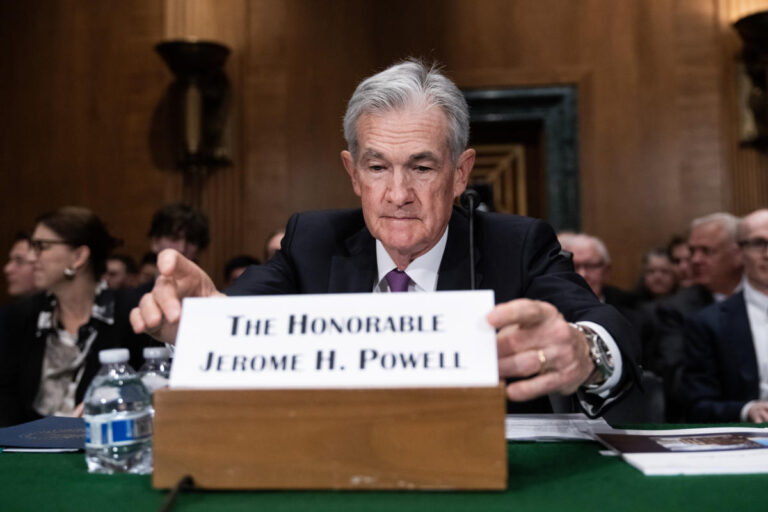Jay Powell really wants Americans to know that the Fed is not considering this year's presidential election or politics when making monetary policy decisions.
The Fed chairman went out of his way to emphasize that point last week in a speech that spent more time discussing the Fed's independence from personal or political bias than interest rates or inflation.
“Fed policymakers serve long terms that are not synchronized with election cycles,” Powell told an audience at Stanford University. “This independence allows and requires monetary policy decisions to be made without consideration of short-term political issues,” he said.
“Internally, we're comfortable with this,” he said during a question-and-answer session after his speech. “We're going to do what we're going to do, and we're just going to do it for economic reasons.”
“I have no concerns that it will be a problem for us,” he added, “regardless of what the election calendar says.”
Both Powell and the Fed are trying to exert influence as the November election approaches, but the central bank is considering the right time to cut interest rates after an aggressive campaign to curb inflation. are doing.
Democrats tend to want to make these cuts as quickly as possible, while Republicans generally want Mr. Powell to make them slowly.
Strategies for pushing these issues home can vary widely, but politicians agree that an election year is a key dynamic: Cutting interest rates before the election means that's what Mr. Powell intended. Regardless, it will likely be beneficial to President Joe Biden and the White House.
Last week was not the first time Mr. Powell has advocated for Fed independence in 2024. He made similar remarks in a “60 Minutes” interview that aired in February.
“We don't consider politics in our decisions,” Powell said in the interview. “We would never do that, and we will never do that. And I think this record, fortunately, the historical record really bears that out.”
In recent months, Mr. Powell has also shown reluctance when asked by reporters and lawmakers for his views on other policy topics, including curbing the U.S. national debt, changing the tax code and pros and cons of immigration reform.
“It's not our role at all to make fiscal policy decisions in any way,” Powell told CBS earlier this year.
On Wednesday, he returned to that theme, saying the Fed would avoid what he called “mission creep” on topics from taxes to immigration to climate.
“We are not climate change policymakers, nor do we intend to be,” he said in his speech.
His climate comments came about two weeks after Sens. Elizabeth Warren and Sheldon Whitehouse sent a letter to Powell arguing that the Fed's high interest rates are slowing clean energy development. .
“We urge you to lower interest rates through 2024 to enable continued progress on clean energy projects and the climate and economic benefits these projects bring,” the Democratic senators wrote.
Republicans have also repeatedly criticized Powell for considering rules that would test banks' ability to withstand climate-related scenarios, arguing that it is outside the Fed's authority.
Chairman Powell made it clear last week that the Fed would avoid climate policy.
“Policies to address climate change are the work of elected officials and the agencies to which they have held themselves accountable. The Fed is immune from such charges.”
In a statement to Yahoo Finance following Powell's recent remarks, Sen. Whitehouse said that climate change, if left unchecked, poses a 'systemic risk' to the financial system and the economy as a whole. He noted that other central banks around the world are also considering climate change carefully.
He also referred to Chairman Powell's recent comments that insurance premiums are rising due in part to climate change, which is a drag on the economy.
“It is clear that the Federal Reserve must consider both climate-induced inflation and climate-induced systemic risks,” Whitehouse said.
Mr. Powell spoke specifically Wednesday about attempts by lawmakers to drag him into partisan political debates.
The host asked him to discuss how consensus is being built in Washington, and he described what it's like to testify on Capitol Hill.
“People are always trying to get me and my colleagues to support their views on fiscal issues and immigration issues, and they're thinking of economic hooks…”
Mr. Powell then mimed reeling in a fishing line, drawing laughter from the audience.
“But we don't do that.”
For the latest stock market news and in-depth analysis of price-moving events, click here.
Read the latest financial and business news from Yahoo Finance


